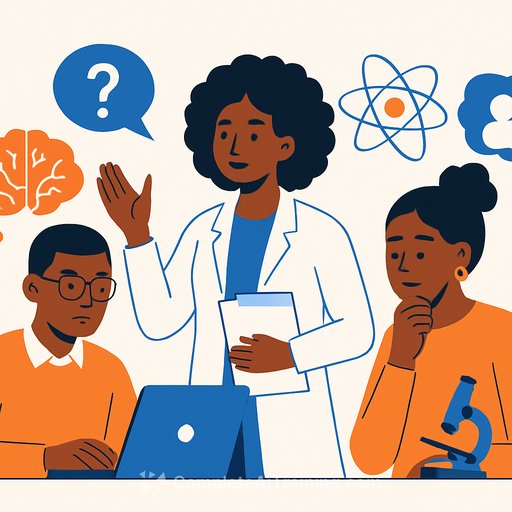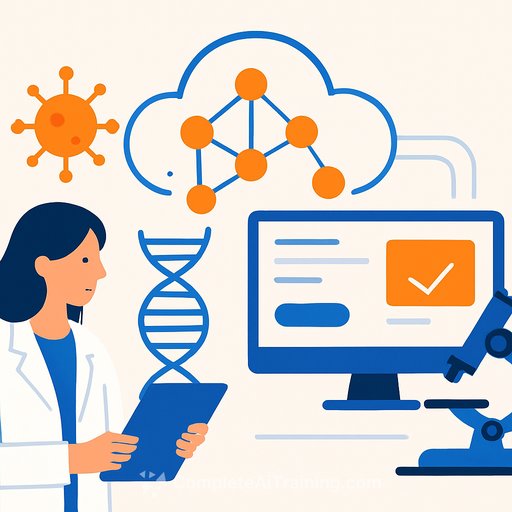Preparing future scientists: From AI to imposter syndrome
Twenty-eight early-career researchers from 16 African countries met in Nairobi for a skills workshop that did more than polish CVs. It sharpened writing, clarified responsible AI practice, improved science communication, and tackled the mental load that comes with a research career, including imposter syndrome.
All participants are grantees of the Seed Grant for New African Principal Investigators (SG-NAPI), a programme by the World Academy of Sciences (TWAS) launched in 2021 with support from Germany's Federal Ministry of Research, Technology and Space. Over the past three years, 120 researchers across Africa (excluding South Africa) have received US$60,000-$67,000 each to build labs, publish, and lead projects with real-world impact.
The 2025 TWAS workshop ran from 21-23 October in Nairobi and drew researchers from Benin, Cameroon, Djibouti, Ethiopia, Gabon, Ghana, Kenya, Malawi, Mauritius, Namibia, Nigeria, Somalia, Tanzania, Uganda, Zambia, and Zimbabwe. The agenda was practical, current, and actionable.
SG-NAPI at a glance
- Purpose: Support researchers returning to Africa after earning PhDs abroad to set up independent research and train students.
- Fields: Agriculture, biology, chemistry, Earth sciences, engineering, ICT, mathematics, medical sciences, and physics.
- Publishing: Grants cover open-access fees, including journals like Nature.
- Impact: Builds capability and helps reduce brain drain by making research careers viable on the continent.
Core skills that compound
- Scientific writing and publishing with integrity
- Responsible AI in research workflows
- Science communication for public and policy audiences
- Mentoring and transdisciplinary collaboration
- How to spot predatory journals and conferences
- Managing imposter syndrome and building confidence
From grant to impact: two field examples
In Djibouti, Abdirahman Elmi studies medicinal plants to develop accessible options against antimicrobial resistance and cancer. His work connects local biodiversity with modern health needs and supports climate-resilient development goals for the region.
In northern Namibia, Emilia Inman partners with Himba communities to restore rangelands, diversify livelihoods, and apply nature-based solutions. She credits TWAS support for new collaborations, access to equipment, and the momentum to scale outcomes that matter to people and ecosystems.
Invest in people, keep talent in Africa
Professor Catherine Ngila, interim executive director of the African Academy of Sciences, was clear: under-investment limits recognition and progress. Africa needs stronger research funding, better institutional environments, and the kind of basic research that trains the next generation of scientific leaders.
She also addressed imposter syndrome head-on. Doubt can skew perception even when the evidence shows you're doing well. If left unchecked, it slows careers, stifles ideas, and keeps capable researchers quiet in rooms where they need to speak up.
Imposter syndrome: practical moves
- Notice the signs: persistent self-doubt, fear of being "found out", and negative self-talk despite clear achievements.
- Apply before you feel "100% ready". Men often apply at ~30% fit; many women wait for ~90%. Stop over-filtering yourself.
- Build support: join networks, seek mentorships, and keep a record of wins to counter biased self-assessment.
- Expect failure in the process. Try, learn, iterate. Progress compounds.
Funding advice from the field
Dr Beatrice Njeri Irungu (Kenya Medical Research Institute) reminded participants that funding is available, but it rewards clarity and initiative. Do the work to match ideas with the right agency and the policies of your institution.
- What reviewers want: novelty, clear impact, feasibility, and alignment with the funder's mission.
- Make the abstract outstanding. Reviewers often use it to screen proposals.
- How to shape strong topics: read recent literature, attend conferences and seminars, keep a log of ideas, and build on questions from prior projects.
What to do next
- Translate workshop lessons into lab practice: writing clinics, mentorship circles, and internal peer review on abstracts.
- Audit your publishing targets and scrub out predatory venues.
- Map AI use cases in your workflow (data cleaning, analysis, reporting) with clear guardrails for responsible use. If you're building AI skills for research, see curated options by job role here: Complete AI Training.
- Nominate yourself for leadership roles before you feel perfectly ready. Opportunities rarely wait for perfection.
Bottom line
Give researchers the right mix-funding, skills, mentorship, and the confidence to ship-and you change outcomes. Programmes like SG-NAPI are building that mix across Africa. The work is practical, the wins are visible, and the signal is clear: invest in people and the science follows.
Your membership also unlocks:






